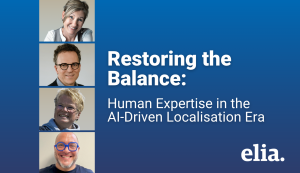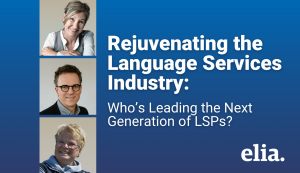Global communication is essential for businesses and individuals alike, accurate and effective translation plays a pivotal role in bridging language barriers. However, ensuring the quality of translations goes beyond mere linguistic proficiency. It requires a comprehensive approach that includes Linguistic Quality Assurance (LQA.) LQA is a systematic process that ensures translations meet the highest standards of accuracy, fluency, and cultural relevance. In this blog post, we will explore the significance of linguistic quality assurance in translation and why it should be an integral part of any localisation strategy.
Preserving Meaning and Intent
Translations should faithfully convey the meaning and intent of the source content. LQA involves thorough proofreading, editing, and revision processes to ensure that the translated text accurately captures the original message. Linguistic experts with in-depth knowledge of both the source and target languages meticulously review the translations, making certain that no nuance, cultural reference, or essential information is lost during the transfer.
Ensuring Linguistic Fluency
LQA goes beyond literal translation. It focuses on maintaining linguistic fluency, ensuring that the translated text reads naturally and smoothly in the target language. Native-speaking linguists with a deep understanding of the target culture meticulously refine the translated content, ensuring it resonates with the target audience. By adapting the language to fit cultural nuances, idiomatic expressions, and regional preferences, LQA enhances the readability and user experience of the translation.
Consistency and Terminology Management
Consistency is key in any translation project, especially when it involves large volumes of content or ongoing localisation efforts. LQA plays a crucial role in ensuring consistency by establishing and maintaining terminology databases and style guides. By adhering to predefined terminology and linguistic guidelines, LQA experts ensure that the translation remains cohesive, regardless of the number of translators involved. This consistency enhances brand image and recognition, while reducing confusion for the end-users.
Cultural Adaptation
Localisation involves not only translating the words but also adapting the content to the target culture. LQA plays an integral role in this process by reviewing the translation for cultural appropriateness and relevance. Localisation experts assess whether the translated content aligns with the values, beliefs, and sensitivities of the target audience. This cultural adaptation helps organisations build stronger connections with their global customers and prevents potentially costly misunderstandings or misinterpretations.
Error Identification and Correction
Even the most experienced translators can make mistakes. LQA provides an essential layer of error identification and correction, helping to catch any linguistic, grammatical, or typographical errors that may have been overlooked during the translation process. Through meticulous proofreading and linguistic analysis, LQA experts can rectify these errors, ensuring the final translation is error-free, professional, and polished.
Meeting Regulatory and Industry Standards
Certain industries, such as legal, medical, and financial sectors, have stringent regulatory requirements for translations. LQA ensures that translations meet these specific standards and adhere to industry-specific terminology and guidelines. By leveraging the expertise of linguists who specialise in these fields, LQA helps organisations maintain compliance, mitigate risks, and preserve the accuracy and integrity of sensitive information.
Linguistic Quality Assurance is an indispensable component of the translation process. By ensuring accuracy, fluency, cultural relevance, and compliance, LQA guarantees that translations are of the highest quality and meet the needs and expectations of the target audience. Investing in LQA not only enhances communication and user experience but also safeguards brand reputation and facilitates global business expansion. For organisations seeking to deliver impactful and effective translations, integrating LQA into their localisation strategy is an imperative step towards success in today’s interconnected world.





